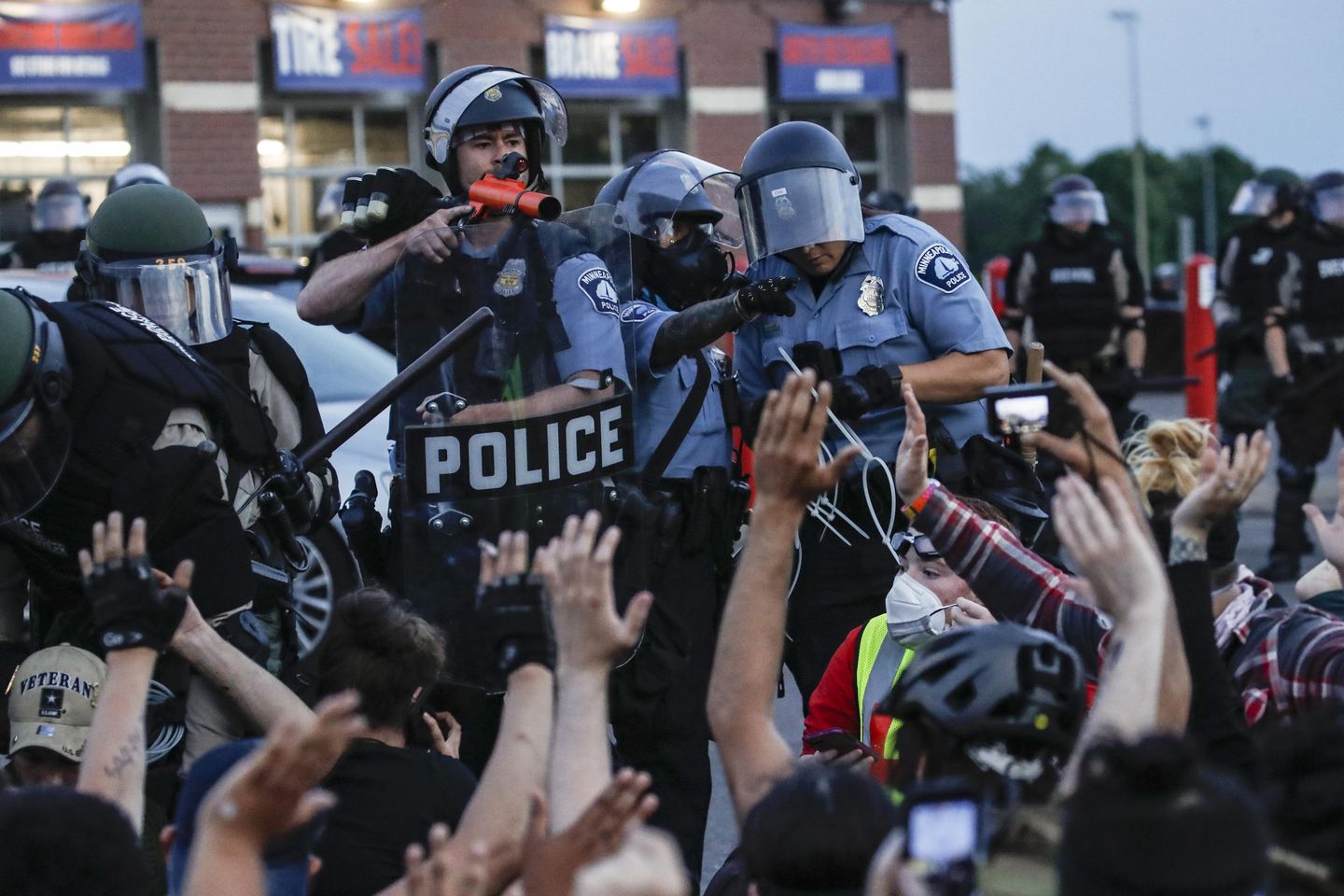
The Department of Justice said Wednesday it will move to release Minneapolis and Louisville, Kentucky, from Black Lives Matter-inspired federal monitoring of their police departments, saying the previous administration wrongly pursued the cases.
Government lawyers will be in court this week to ask judges to cancel pending “consent decrees” that would have imposed the monitoring.
The Biden administration had struck the agreements in December and January, moving to beat the transition to the Trump administration. Then-Attorney General Merrick Garland said the deaths of Black residents at the hands of police had to be rectified.
But Assistant Attorney General Harmeet Dhillon said the actual investigations the department used to justify heavy-handed federal monitoring were “flawed to the extent that we don’t have confidence in these factual findings.” She said her lawyers couldn’t stand up in court and advocate for them anymore.
“In these cases we believe that when we’re accusing law enforcement we have to have a sound factual predicate for that. We don’t believe that existed,” said Ms. Dhillon, who leads the department’s Civil Rights Division.
The Justice Department will also end what it called pre-consent decree investigations into six other jurisdictions: Phoenix, Arizona; Trenton, New Jersey; Memphis, Tennessee; Mount Vernon, New York; Oklahoma City; and the Louisiana State Police.
The moves mark a major reversal in focus for the Justice Department. Ms. Dhillon’s predecessor at the civil rights division, Kristen Clarke, whom the Trump team said was an “avowed defund the police supporter.”
Ms. Clarke and Mr. Garland had cited the deaths of black residents George Floyd in Minneapolis and Breonna Taylor in Louisville as reasons why those cities needed federal monitoring of their police practices. They said they found excessive use of force, unlawful search warrant practices, poor treatment of disabled residents and discrimination against Black people.
Ms. Dhillon said her division reviewed those findings and found they couldn’t stand up in court.
She said in some cases her predecessors cherry-picked statistics and in other cases ignored obvious explanations for racial difference in enforcement.
In Memphis, for example, she said the previous administration’s investigation suggested that police were racially discriminating in encounters with the homeless. But Ms. Dhillon said the city is majority-Black, the police department is majority-Black, and 75% of the city’s homeless population is Black.
She said it was a “real stretch” to conclude racism in the encounters.
Minneapolis Mayor Jacob Frey complained that the dismissals came in the same week as the five-year mark of the death of Floyd, who was killed at the hands of city police.
“What this shows is that all Donald Trump really cares about is political theater,” he said.
He said the city is going to carry out the reforms called for in the decree anyway.
“We’re going to move forward with that work, with or without the White House,” the mayor said.
The American Civil Liberties Union denounced the rollback, saying the Trump administration was abandoning federal oversight of police abuse.
“The DOJ under Biden found police were wantonly assaulting people and that it wasn’t a problem of ‘bad apples’ but of avoidable, department-wide failures,” said Jenn Rolnick Borchetta, the ACLU’s deputy project director on policing.
Consent decrees are binding agreements that jurisdictions enter into, usually under threat of even more severe federal action.
In this case they would have installed monitors to scrutinize and report back on progress, and violations.
Ms. Dhillon said consent decrees have proved to be problematic, and often seem to lead to more crime, and can last for years — all costing the local taxpayers, who have to fund the changes required, as well as the monitoring.
“It is a very serious matter to put an American city under a consent decree that increases crime, increases cost, decreases safety and in some cases makes it virtually impossible to comply or get out from under it,” Ms. Dhillon said.
She said the department isn’t giving a pass to bad actors. She pointed to ongoing federal prosecutions of police officers accused of obtaining the warrant that led to the no-knock search that left Taylor dead in Louisville.
She also said they aren’t ruling out the use of consent decrees in the future, but said they must meet a higher standard than the Biden team was using.
And Ms. Dhillon said Minneapolis, for example, is still bound by a state-level consent decree.
That’s something even the ACLU acknowledged.
“While the ACLU of Minnesota is deeply disappointed in the DOJ’s decision to back out of this consent decree five years after the murder of George Floyd, this decision does not mean that the Minneapolis Police Department will be free to violate the rights of Minnesotans with impunity” said Deepinder Mayell, executive director of the state branch.
Jason Johnson, president of the Law Enforcement Legal Defense Fund, hailed the dismissals Wednesday.
“We are gratified that the highest levels of DOJ leadership has recognized the dangers of broad, sweeping, and expensive federal oversight of local law enforcement,” he said.
He said reforms should be more narrowly tailored than the sweeping monitoring the Biden team had sought.
“This move will, without doubt, enhance public safety and help restore order in cities across America,” Mr. Johnson said.
Ms. Dhillon said career lawyers at the Justice Department had tried to get then-Attorney General William Barr to initiate investigations into Minneapolis and Louisville under the first Trump administration but he declined.
Those lawyers sought — and won — a different answer from Mr. Garland, Mr. Biden’s attorney general, sparking the investigations and eventual consent decrees.
Now the department has re-reversed and is asking the court to dismiss the Minneapolis and Louisville cases with prejudice. The department is also closing its own cases and retracting the Biden administration’s official findings.












